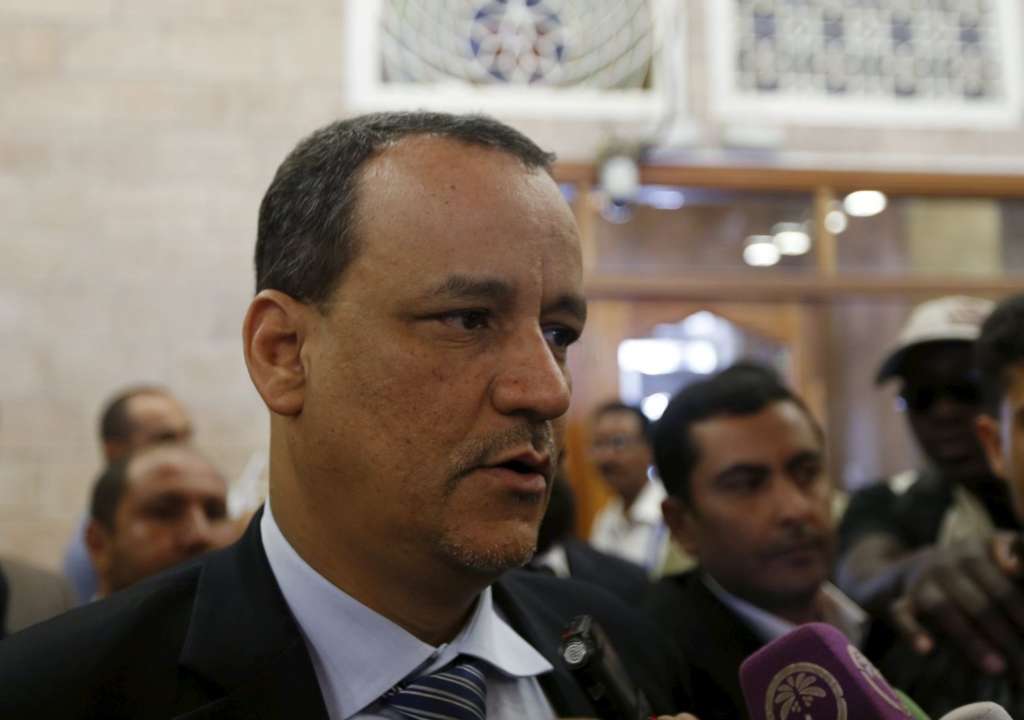Cairo- Riyadh- Houthi-led insurgency in Yemen recently declared establishing a higher self-leading political council, causing unrest among Yemeni peace-brokering parties. In light of recent developments, U.N. Special Envoy to Yemen Ismail Ould Cheikh Ahmed demanded that both conflict parties’ delegations extend negotiations underway in Kuwait another week, hoping to reach a comprehensive solution for the crisis.
Based on the U.N. envoy’s request, officials at the Kuwait Ministry of Foreign Affairs announced that the Gulf country will subsequently be extending its hospitality and host the negotiations another week, leaving the deadline on August 7.
The U.N. envoy’s efforts come at a time that all exertions are being poured into saving the second Kuwait-held peace talks for Yemen. International and Gulf-spent efforts invest in supporting political dialogue and peace-brokering negotiations.
On the other hand, wide-range denunciations by national forces and political parties in Yemen continue against the announcement by the Houthi militia on forming a political council, a step considered by the national activists as demolishing to the peace process and an evidence of ill-will harbored by Houthis.
The move is believed to be another insurgency step taken to abort the Kuwait consultations which enjoy the support of Yemeni national forces, the international community and regional forces.
Sources within the government’s delegation confirmed the necessity of abiding by the five-point plan established and proposed by U.N. envoy Ahmed prior to launching the second Yemeni peace talks.
The proposition stated preliminary terms which included cessation of hostilities and reinforcing ceasefire committees; establishing a security committee to monitor withdrawal and turn in of artillery; the opening of safe passages to cities; the release of war captives and detainees; and committing to the peace process at the negotiations.
Moreover, Houthis staged an abortive attempt to infiltrate Saudi grounds yet were confronted by the Kingdom’s forces. According to a statement released by the Saudi-led Arab coalition, militias attempted to slip across borders in Jizan which is situated at the southwest corner of Saudi Arabia and directly north of the border with Yemen.
The militia’s attempt is considered a new truce violation registered on the insurgency’s account.
Attending the matters concerning those displaced by the conflict, Yemen’s interior minister Major General Hussein Mohammed Arab met with the Acting Director of the office of the High Commissioner for Refugees Affairs in Aden Aysha Mohammed Saeed.
During the meeting, the Yemeni minister lauded the efforts being exerted by the High Commission for Refugees Affairs in Yemen, particularly its Aden-based office, confirming the importance of the Commission’s shouldering the effort of transporting all refugees to the Kharz camp so that the current situation in Yemen would not be exploited by human trafficking and terrorist activities.
He noted that the number of refugees has, from January to July 2016, surpassed 64,000 refugees.
On that note, Kuwait’s first deputy premier and foreign minister Sheikh Sabah Khalid Al-Hamad Al-Sabah also met with U.N. Ahmed envoy in Kuwait. During the meeting, the latest developments in the region, particularly the inter-Yemen consultations in Kuwait, were discussed.
